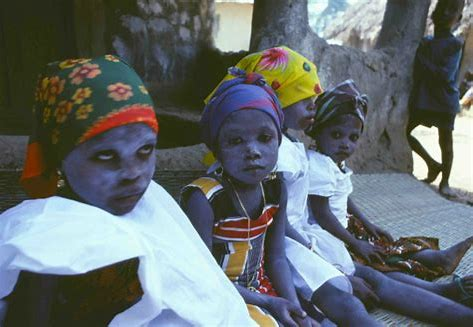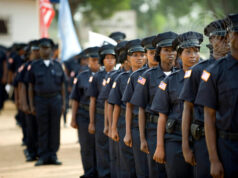
Currently, this ‘dangerous’ practice is having an impact on 31.8% of Liberian women and girls, and many more are still at risk according to World Bank data. Since forced mutilations are frequently reported, these women and girls don’t have much of a choice in the matter.
FGM has a long history in Liberian society and is deeply ingrained there. It is difficult to address the practice because of the intense taboos that surround it and the linked Sande secret societies. Due to the zoes’ immense strength, obtaining social, economic, or political influence in communities across about two-thirds of the nation requires membership. Non-members who discuss Sande problems, disobey Sande legislation, or travel near the Sande bush schools risk being kidnapped and subjected to FGM.
Despite having signed and ratified regional and international human rights agreements, such as the Maputo Protocol, that denounce the practice as a violation of human rights, Liberia continues to be one of the three West African nations without a statute making FGM illegal.
FGM will be prohibited for three years, Chief Zanzan Karwor, the head of the Traditional Council of Liberia, stated in February 2022. Many media outlets, including members of the public, took this to mean that ‘bush’ means putting a ban on bush schools where FGM is practiced.
FrontPage Africa’s January 23, 2023 edition published a story titled Liberia: Bush School Famous for FGM Practice Closes in Liberia.” Another publication by the paper on December 5 carried the headline “Liberia: Sande Bush Schools Still Operational Despite Three-Year Moratorium.”
Julie Endee provides clarity:
Julie Endee is Liberia’s cultural ambassador, a position she has held for decades.
She clarified that only the practice of female genital mutilation (FGM) was banned by the government of Liberia and not the Bush schools, as reported by local media after the pronouncement by Chirf Kawor.
According to her, the bush school was outlawed. On September 27, 2023, she gave a speech at the beginning of a two-day media course on impartial reporting on FGM.
According to Endee, Sande activities are still permitted in Liberia, but without mutilation.
Endee claimed that the ‘initiation without mutilation’ was designed as a type of bush school where girls are taught how to be good wives, and dancers, and knowledgeable about African tradition without removing any sexual organs.
She added that ceremonies ending FGM in Liberia had taken place in the counties of Montserrado and Grand Cape Mount and that ceremonies ending FGM in Sande schools in the nine remaining FGM-practicing counties were currently underway.
Kpanah Karbaijah deputy chief: “People say FGM is bad and can kill, but since my ma and pa born me, I have not seen anyone die from it,” Kpanah Karbaijah, Deputy Chief of the National Counsel of Chiefs and Elders of Liberia (NACCEL), said.
He furthered: “They say FGM is bad; we should remove it, so we move it from the Sande society.”




